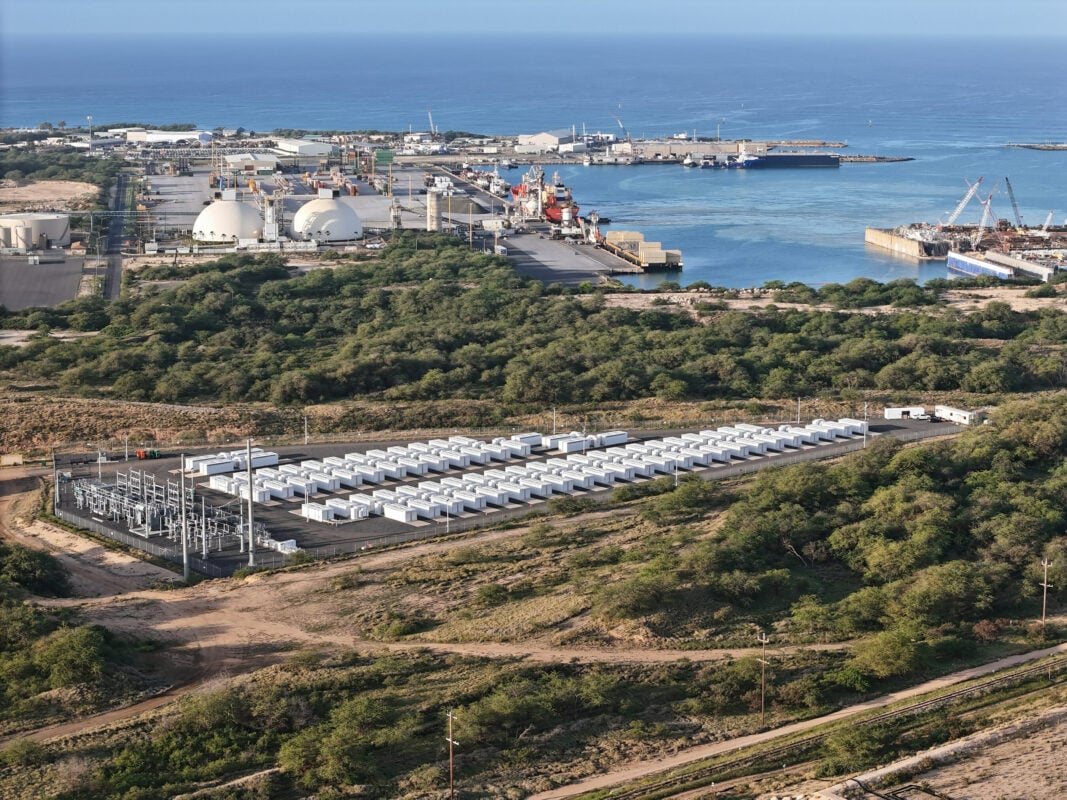
That represented a 4% year-on-year increase from 3,889MWh deployed in Q1 2023. In each quarter of last year, storage deployments exceeded 3GWh, and the full-year 2023 total was given as 14.7GWh in January’s most recent financial reporting from the company.
Tesla said gross profit for the segment was up 140% year-on-year, despite a continuing decline in solar deployments. Solar PV deployments slumped to just 40MW in the previous quarter, and figures weren’t even provided for solar in the latest shareholder deck for Q1.
The company also noted that energy generation and storage remains its highest-margin business line, perhaps a bright spot in an otherwise challenging quarter for its EV business. It was a similar story in Q3 2023, as the EV business slowed, but quarterly energy storage deployments hit a then-record of 3,980MWh.
Vehicle production was down 2% and deliveries 9% year-on-year, although Tesla did see increases in its non-vehicle mobility-related products: supercharger stations and supercharger connections were up 26% and 27%, respectively, for example.
Energy generation and storage revenue for Q1 was just over US$1.6 billion, a 7% increase from US$1.5 billion in Q1 2023, while automotive revenues fell 13% from last year’s equivalent period, from just under US$20 billion to US$17.4 billion.
Total revenues for the quarter, also including “services and other income,” fell 9% to US$21.3 billion from Q1 2023, and gross profit was down 18%. With the company largely focused on ramping up manufacturing and advancing products, like full-self driving (FSD) and research and development, a year-on-year increase in operating expenses of 37% contributed to a 21% decline in adjusted EBITDA across all business lines.
California Megapack factory to complete 40GWh ramp this year
Musk said in an earnings call that the EV market is under pressure globally from depressed adoption rates, while Tesla is ramping up production of its ‘affordable’ Model 3 EV. The CEO was bullish that while other automakers are pulling back on EVs, and instead turning to plug-in hybrids, Tesla believes “this is not the right strategy, and EVs will ultimately dominate the market.”
“Despite these challenges, the Tesla team did a great job executing in a tough environment and energy storage deployments of Megapack, in particular, reached an all-time high in Q1 leading to record profitability for the energy business,” Musk said.
“And that looks likely to continue to increase in the quarters and years ahead. It will increase. We actually know it will … significantly faster than the car business as we expected.”
Tesla has a dedicated Megapack factory in Lathrop, California, and as of the start of this year its annual production capacity had reached 20GWh, and by the end of this year expects to ramp that too, to 40GWh.
The company also plans to start construction on a Megapack factory in Shanghai, China, and according to various reports, work on that is set to begin in May.
S&P Global’s top five rankings of BESS system integrators released in Q3 last year put Tesla third globally for installed projects as of July 2023. The company was behind Chinese PV inverter manufacturer and BESS integrator-manufacturer Sungrow, and Fluence, which is owned by shareholders including German engineering group Siemens, US IPP AES Corporation, and a Qatari sovereign wealth fund.
According to Sungrow’s latest results, the Chinese company shipped 10.5GWh of BESS in 2023, while Fluence, publicly listed like Tesla, doesn’t release deployment figures, only financials. Fluence is set to make its next financial results report 8 May.
Conference call transcript by The Motley Fool.


